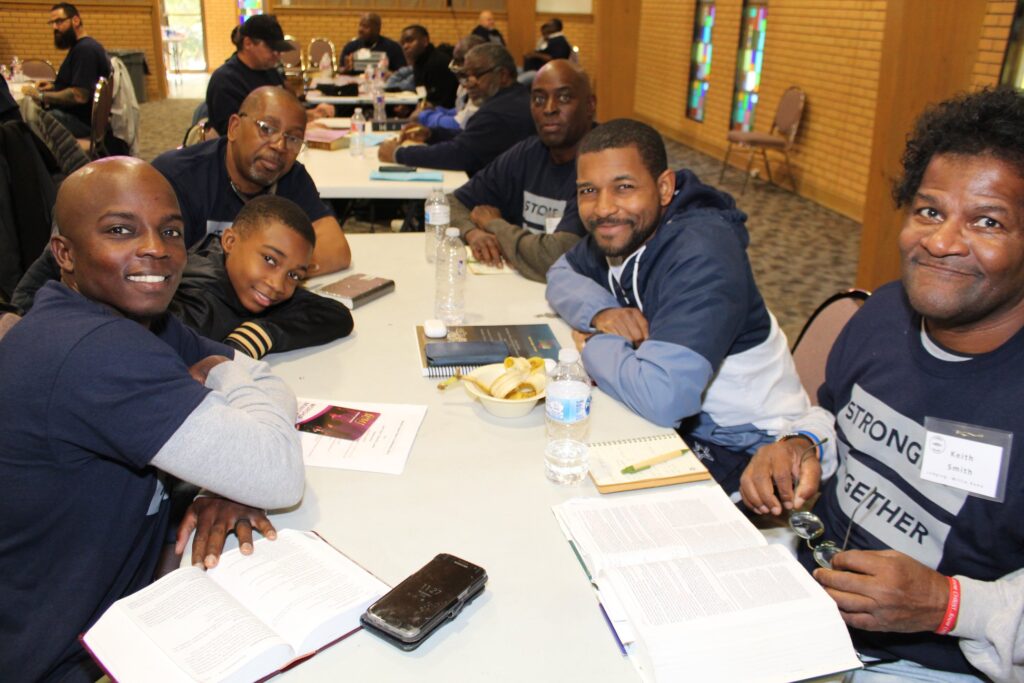
Discover what the scriptures say about Bible literacy and how it impacts organizations like World Impact.
As long as we have good leaders walking ahead of us and a dependable search engine, do we need to worry about Bible literacy?
We have all seen faithful people misinterpret a scripture or take verses out of context. It’s also not unusual to witness readers ignore challenging passages of the Bible. Sometimes, faithful believers come across parts of the scriptures that are difficult to understand and quickly decide that biblical understanding isn’t possible.
These are all examples of Bible illiteracy among readers of God’s word. Not only can it have eternal consequences, but it can also greatly impact how you and I work out our faith and serve one another here on earth.
What Do The Scriptures Say About Bible Literacy?
Two verses speak powerfully to the subject of biblical literacy:
2 Timothy 3:16 says:
All Scripture is God-breathed and is useful for teaching, rebuking, correcting, and training in righteousness.
And Joshua 1:8 instructs us to:
Keep this Book of the Law always on your lips; meditate on it day and night, so that you may be careful to do everything written in it. Then you will be prosperous and successful.
Knowing this, we can say with confidence that Bible literacy is not just possible but necessary.
For those called upon to lead and serve in Christian churches and ministries, being biblically literate is essential for staying aligned with God’s will. That’s why our Church-Based Seminaries and other core programs focus heavily on teaching Bible literacy.
Without a clear understanding of the scriptures, you and I would not know how to best discern God’s calling on our lives or ministries. In fact, how can biblical literacy impact ministries like World Impact?
Keep reading to explore the impact that literacy can make in our faith walk and how we can increase our biblical literacy quotient.
Mission-based discipleship: A Culture of Disciple-Making
The Background of Bible Literacy
We can’t address biblical literacy without considering those who have laid the foundation. Biblical scholars in ancient cultures utilized various methods such as memorization, interpretation, reflection, and debate to ensure that future generations could clearly understand the scriptures and pass on this knowledge. These practices laid a foundation that paved the way for modern-day studies of the Bible.
Where biblical literacy was once the focus of educational institutions, today, you and I have unlimited access to tools and resources that can open the doors to increase our understanding of the Bible — whether we’re ministry leaders, pastors, or lay people. We have no excuse! There’s no need to be intimidated; for any individual verse, story, or character, there is a plethora of information. The question is:
Are we becoming students of the Bible who can interpret and correctly apply the scriptures to our faith walk and practice?
If not, do not despair. At the end, we’ve provided some instructions on how to make that a reality in your everyday life.

What’s the Practical Impact of Bible Literacy?
Consider what the Bible teaches about the condition of poverty. Are those who live impoverished being punished? Did they not understand the formula for prosperity? Or are they simply living in those conditions based on their circumstances?
Being Bible literate means that, instead of taking one verse or one story, we examine the narrative of the entire scripture. When it comes to the subject of poverty, what does that mean?
There is a theme of poverty within the Bible, identifying the Israelites as impoverished and displaced, as well as the Redeemer, who was born into poverty, lived while working among the poor, and warned against the abuse of wealth. The scriptures certainly do not connect poverty to punishment.
Why is this so important?
When it comes to our perspective of poverty, it has a direct impact on how we prioritize redemptive poverty work. For the urban ministers we train, whether they’re in Church-Based Seminaries, prisons, or in Trauma Healing workshops, a foundation of love and grace is crucial to their ministries.
Keep reading: A Powerful Story Of God’s People Being The Conduit For Trauma Healing
Let’s examine biblical literacy further, exploring what the scriptures say about our responsibility in caring for those who find themselves impoverished, for whatever reason. Here’s Romans 12:6-8:
Having gifts that differ according to the grace given to us, let us use them: if prophecy, in proportion to our faith; if service, in our serving; the one who teaches, in his teaching; the one who exhorts, in his exhortation; the one who contributes, in generosity; the one who leads, with zeal; the one who does acts of mercy, with cheerfulness.
In our churches and ministries, we have a responsibility to serve each other. Specifically, my gift is for your good. Your gift is for my good. Not only can I NOT do this alone, but I NEED you to be who you are in Christ.
Those who are brothers and sisters in Christ who find themselves in difficult circumstances NEED us to be who we were called to be in Christ.
This truth is revealed through a clear understanding of the verse written by Paul to the Romans. Not only does a proper application include an emphasis on the theme (serve!) versus overthinking the details of giftedness, but it also reminds us that it’s our responsibility to the members of the body to serve. What a beautiful picture.

10 Common Bible Literacy Errors Faithful People Commit Everyday
Beware of some common mistakes people make as they apply the scriptures because they aren’t operating out of a clear understanding of the Bible.
- Adopting superstitions or false doctrines based on incorrect teachings from misinterpreted scripture.
- A shallow reading of the Bible without digging deeper into the meaning and purpose behind each passage, literary style, or author’s main message.
- Claiming that only certain parts of the Bible are relevant for today’s world when all scriptures are still applicable in some way shape or form (2 Timothy 3:16).
- Skimming over controversial issues found within scripture rather than facing them head-on with an open heart and mind (Hebrews 11:1).
- Believing that one can achieve salvation without accepting Jesus Christ as Lord and Savior (John 14:6).
- Applying passages outside of their that were meant only for a specific time in history to contemporary life situations as if they are universally applicable.
- Taking verses literally without fully understanding the context and culture in which they were written.
- Over-spiritualizing or misinterpreting scriptures for personal gain or justification of an agenda rather than honoring God’s intended message and purpose behind them.
- Assuming that any particular passage reflects the entirety of God’s nature when scripture shows us different aspects of His character (such as justice, mercy, etc.).
- Cherry-picking select scriptures rather than taking into account the whole counsel of God’s Word when making decisions or forming opinions (Acts 20:27).
None of us are above making these mistakes. And, although these mistakes are common, we don’t have to keep making them! Instead, we can become students of the Bible — and that can start today.

4 Simple Steps to Increase Your Bible Literacy
As detailed in the article What’s So Important about Biblical Literacy?, author Heather Adams details the process she employed to improve Bible literacy. Here’s a sampling of those proven steps:
1. Decide to seriously pursue reading the Bible.
Rather than a passing pursuit, resolve to make it a priority to become a student of the scriptures.
2. Pray about that choice and ask God for knowledge and clarity.
Increasing Bible literacy requires enlightenment and clarity from the Author—both to understand the narrative, but also to know how it’s applied in your life, church, family, and ministry.
3. Devote yourself to a quiet time each day.
If we had a dime for every time we’ve heard this suggestion, right? There’s a reason it’s a popular suggestion: we need a daily routine of quieting ourselves, reading His word, and listening for His leading.
4. Find resources to develop study skills.
Whether you subscribe to a podcast or utilize books and guides to help your efforts, any reputable materials that can be used to read, understand, and study the Bible will be useful.
Sounds simple, right? Like anything worth doing, it requires intention and work.
Ready to increase your biblical literacy quotient? Start by CHOOSING to dive into the Bible regularly, asking God for wisdom and knowledge, devoting yourself to daily study, and finding helpful resources. Click To TweetBIBLE LITERACY ADVANCES THE KINGDOM
As I addressed above, digging into the scriptures can be uncomfortable, but also revelatory. Why not approach our lives armed with God’s wisdom?!
Instead of living unsure about His direction and leading, we can grow deeper in our faith and advance the kingdom with a clear understanding of His ways.
When we have an intimate knowledge of scripture, we are equipped to properly apply God’s principles of justice, mercy, and love to those around us and beyond.
Biblical literacy just happens to be a passion of our new SVP of Advancement and Communications, Sarah Jeffries. We are excited to serve alongside you in your new role, Sarah! To learn more about the impact of our church-based seminaries, read Greg’s story of healing and redemption.

